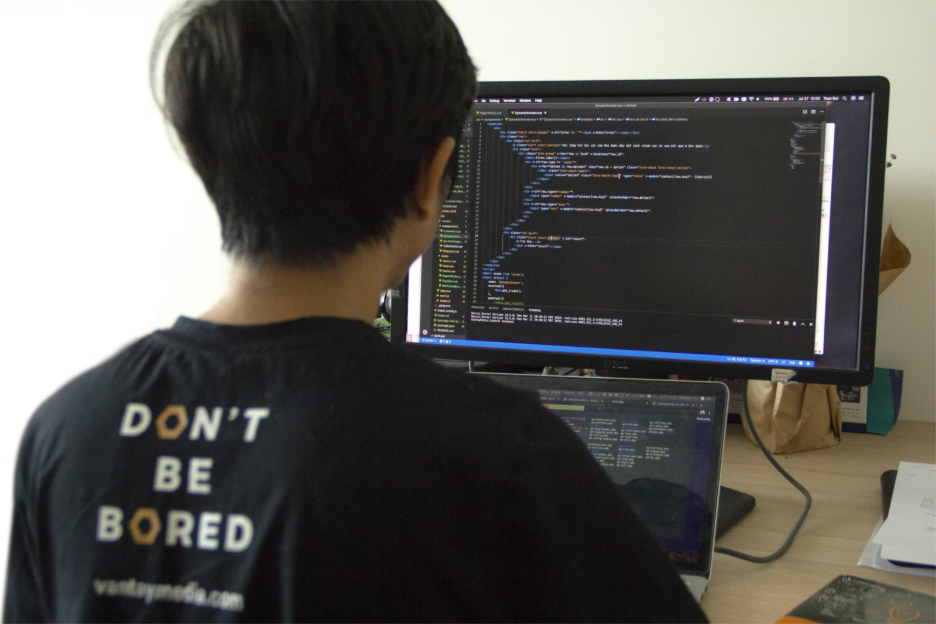The match between software development and video games
By Andy Camacho, Staff Software Developer en Jalasoft.
August 29, 2025
The relationship between software development and video games is one of the most dynamic and technically intense in the tech world. This partnership works like a couple’s dance: video games push the boundaries of what’s possible, while software development makes ever more amazing gaming experiences a reality. That’s no small feat: the gaming industry is expected to generate around $187.7 billion this year, and all of that growth is sustained by code and software engineering.
Video games are among the most complex software systems in existence. Think of everything they must handle simultaneously: real-time graphics rendering, physics simulation, artificial intelligence, network management —all of it fluidly and believably. It’s not like a normal application; here, performance is key, and there’s no room for error. That’s why a career in game development means specializing in the elite of software engineering.

Game engines: the foundation of every project
Behind every video game are game engines , the foundation upon which the entire experience is built. Among the most popular are:
- Unity: super versatile, ideal for multiplatform, with its own language similar to C#.
- Unreal Engine: The king of spectacular graphics uses C++ and offers a visual scripting system.
- Godot: open-source, free, flexible, and friendly to both beginners and professionals.
There are also more specific tools, such as Phaser for web games or MonoGame for .NET development.

Programming languages and their uses
Each language has its advantages and disadvantages:
- C++: dominant in triple-A games (such as Fortnite or The Witcher 3) due to its speed and control over the hardware.
- C#: Essential for Unity, easy to learn, and with automatic memory management.
- Python and JavaScript: widely used in tools, prototypes, and web games.
- Rust: It’s gaining ground thanks to its security and performance.
The development process
Developing a video game is a combination of technique and creativity. It involves teamwork using agile methodologies, version control (Git), and continuous integration. It involves optimizing performance, managing memory, and designing architectures capable of supporting long hours of gameplay, collaborating closely with artists, designers, and musicians.
Industry trends
The industry is constantly evolving. Some current trends include:
- Machine learning to generate content or character behaviors.
- Cloud gaming, which requires an advanced network infrastructure.
- True cross-platform development .
- Accessibility, with customizable controls and features like text-to-speech.

Career opportunities
If you are passionate about software and video games, there are multiple options:
- Game programmer
- Graphics Engineer
- Tool developer
- Game Engine Specialist
To break into the industry, it’s advisable to build a portfolio of your own projects and participate in game jams (like Ludum Dare). Events like GDC (Game Developers Conference) are ideal for networking and learning from the best.
Education and video games
Today, education also uses video game development tools like Godot and Unity to stimulate young people’s creativity and teach programming concepts in a natural and entertaining way. Learning through play not only makes the process more fun, but also sparks curiosity and motivation, allowing students to better assimilate knowledge while creating their own interactive projects.
Conclusion
Software development and video games constantly feed off each other. Tools like Unity and Godot are becoming increasingly accessible, while technologies like cloud computing and artificial intelligence continue to pose technical challenges. In the end, it all comes down to using code to create experiences that entertain, inspire, and connect people around the world.
Discover more articles of your interest!
Go back


